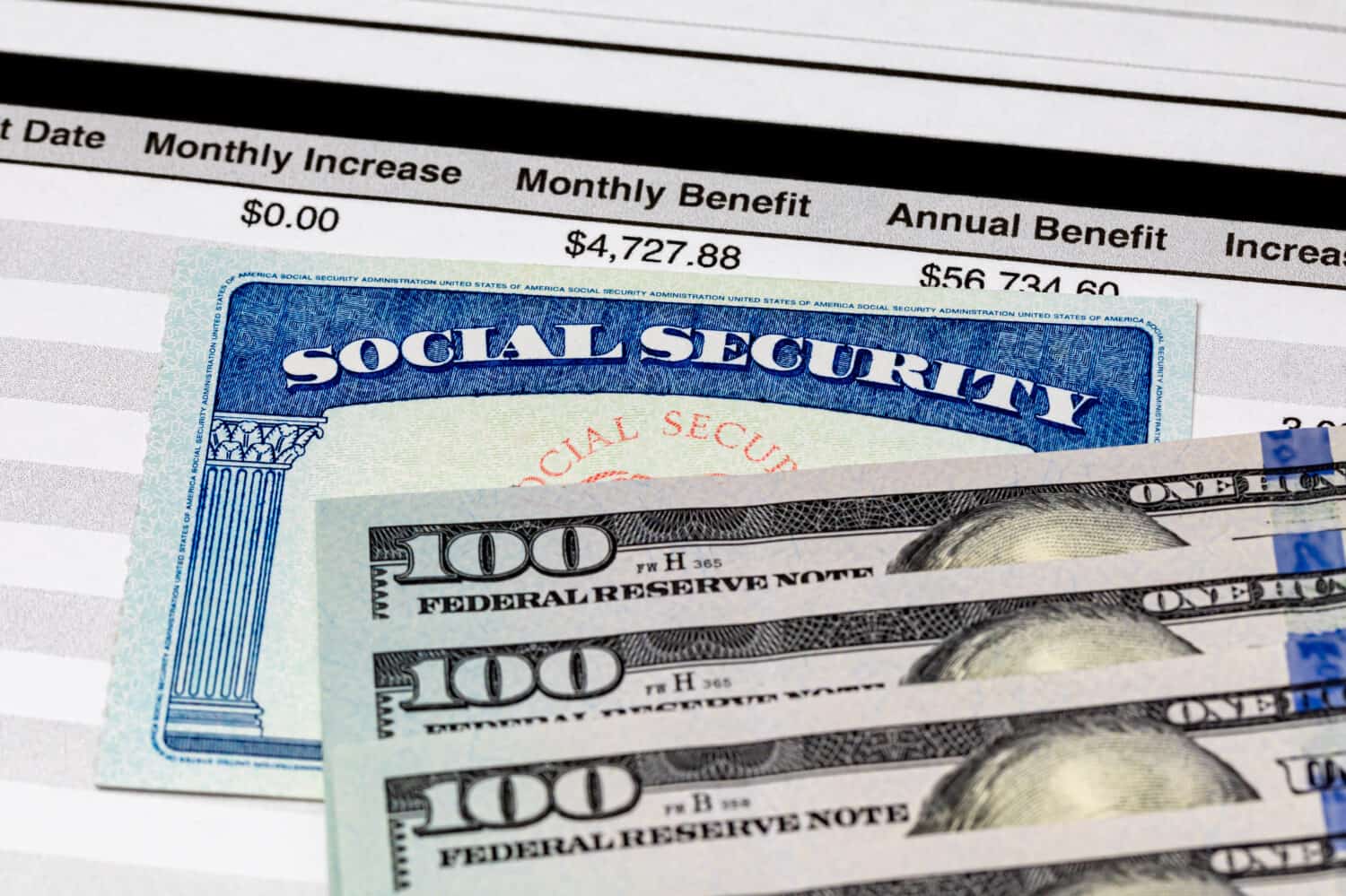
The age you decide to begin drawing Social Security has a huge impact on your monthly income in retirement. The earliest you can draw Social Security is 62, but you can continue waiting until 70 for maximum benefits.
Which one is best?
That’s exactly what we’ll dive into below.
There are trade-offs to both options, and one isn’t necessarily better than the other. It depends on your specific situation. We’ll use our expert knowledge of Social Security to help you sift through your options.
Understanding Social Security Benefits

Social Security benefits are calculated based on two factors: your income and your retirement age.
Your income is based on your 35 highest-earning years (with adjustments for inflation).
The Social Security Administration determines your Full Retirement Age (FRA) based on your birth year. Typically, it’s between 66 to 67.
Your benefits are then calculated based on how much you made and when you decide to withdraw based on this FRA date. The calculations are a bit different for everyone due to the interplay of these two factors.
You can play with the SSA’s quick calculator to see how when you retire matters.
What Happens When You Draw Social Security at 62?

The earliest you can draw Social Security is 62. If you draw as early as possible, your benefits will be reduced by about 25-30%. Why the range?
It depends on when your FRA is. If your FRA is closer to 67, the deduction will be closer to 30%.
What the SSA is about is how many months you’re drawing before FRA.
This reduction is permanent. It doesn’t go up after you reach your FRA. It remains permanently reduced.
The big advantage of collecting at 62 is getting access to your money immediately. This may seem like a no-brainer if you plan on retiring early or need the income for expenses. It can also be a good option if you have health concerns or a shorter life expectancy.
What Happens When You Draw Social Security at 70?

If you wait past full retirement age, your monthly benefits will increase by about 8% a year for every year until you are 70. At 70, your benefits are maximized and won’t increase further.
This growth is officially referred to as “Delayed Retirement Credits.”
If you wait all the way until 70, you can expect your benefits to increase by around 24-32%. Again, this is based on your FRA. If your retirement age is later, you can expect a lower increase (as you’ll have fewer delayed retirement credits at 70).
You’ll receive fewer checks overall by waiting until you reach 70. However, if you have a longer lifespan, your lifetime benefits may be higher. On the other hand, you may actually get less benefits if you don’t live much past 70.
We primarily recommend waiting for those who anticipate a long lifespan.
Key Factors to Consider

So, which option should you choose? It depends on four primary factors:
1. Health and Life Expectancy

For the most part, we don’t recommend waiting until 70 to draw Social Security. Why?
Life expectancy.
The U.S. life expectancy has never been much longer than 70. Currently, it’s 76.4, but for men, it’s even lower.
When you delay until 70, you’ll receive fewer checks. Based on the current life expectancy, many people won’t have enough time to make up for this loss. Increased monthly benefits are most beneficial when they have time to accumulate.
Of course, this is also very personal. Some people are extremely healthy well into their 60s and have a family history of living a long time. If this sounds like you, delaying benefits could be more beneficial.
No one knows how long they’re going to live, so this is a bit of a guessing game!
2. Current Financial Situation

Evaluate your current financial resources, including savings, investments, and other retirement income streams. Some people will rely more on Social Security than others!
If you have sufficient assets to cover your expenses without Social Security, waiting until 70 can boost your financial security later in life.
Conversely, if you need additional income now, collecting early may make sense.
3. Employment Status

If you are still working and earning income, Social Security may reduce your benefits if you’re below your FRA. There is an earning limit that changes each year according to inflation. After reaching your full retirement age, this limit disappears.
Therefore, if you plan on working and receiving Social Security at the same time, you likely want to wait until your full retirement age.
Delaying benefits while working could also raise your future Social Security benefits if it raises your lifetime earnings.
4. Spousal Benefits

If you’re married, you need to consider spousal benefits, too. The higher-earning spouse may want to delay benefits while the lower-earning spouse draws, for instance.
It is often advantageous for the lower-earning spouse to collect early so that the higher-earning spouse’s benefits will continue to grow.
Take Charge of Your Retirement In Just A Few Minutes (Sponsor)
Retirement planning doesn’t have to feel overwhelming. The key is finding expert guidance—and SmartAsset’s simple quiz makes it easier than ever for you to connect with a vetted financial advisor.
Here’s how it works:
- Answer a Few Simple Questions. Tell us a bit about your goals and preferences—it only takes a few minutes!
- Get Matched with Vetted Advisors Our smart tool matches you with up to three pre-screened, vetted advisors who serve your area and are held to a fiduciary standard to act in your best interests. Click here to begin
- Choose Your Fit Review their profiles, schedule an introductory call (or meet in person), and select the advisor who feel is right for you.
Why wait? Start building the retirement you’ve always dreamed of. Click here to get started today!
Thank you for reading! Have some feedback for us?
Contact the 24/7 Wall St. editorial team.

